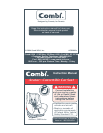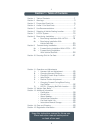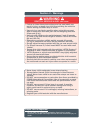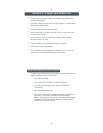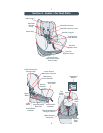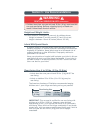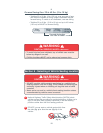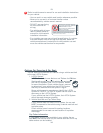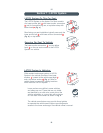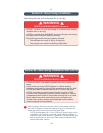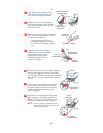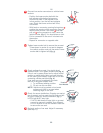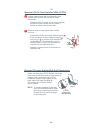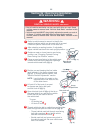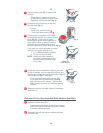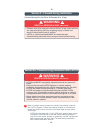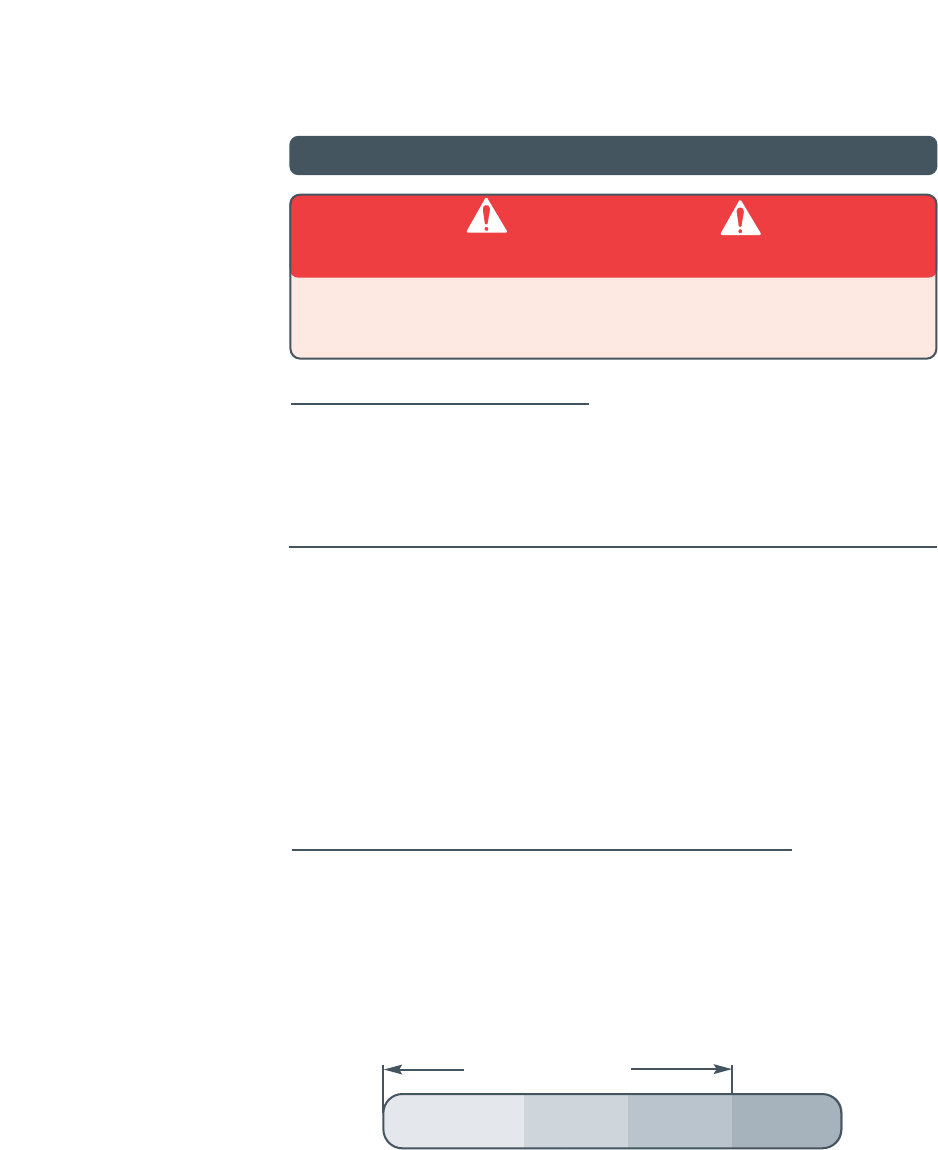
9
Section 5 - Use Recommendations
Height and W
eight Limits:
This child restraint is designed for use only by children whose:
-Weight is between 5 and 40 pounds (2.3 and 18 kg) and,
- Height is between 19 and 40 inches (48 and 102 cm).
Infants With Special Needs
A preterm infant or low birth weight infant may be at special risk
traveling reclined in a vehicle or aircraft. According to the American
Academy of Pediatrics, these infants may be at increased risk of
suffering breathing or other difficulties if improperly reclined or
positioned in a car seat.
Have your physician or hospital staff evaluate your infant in this car
seat before you and your infant leave the hospital. If your infant is
not able to travel in a reclined position, DO NOT use this car seat.
Use a car bed for your infant.
WARNING
DEATH or SERIOUS INJURY can occur
• Children less than one year old and 20 lbs. (9 kg) must use this
car seat rear-facing. Serious crippling injury or death can
result if infant faces front of vehicle.
10
Rear-facing Use: 5 to 30 lbs. (2.3 to 13.6 kg)
• Infants less than one year old and 20 lbs. (9 kg) MUST be
rear-facing.
• Infants or toddlers 20 to 30 lbs. (9 to 13.6 kg) may be
rear-facing.
The American Academy of Pediatrics recommends keeping
children over 1 year of age rear-facing as long as possible.
IMPORTANT: This car seat is certified for use rear-facing with
children up to 30 lbs. (13.6 kg). However, some children
approaching 30 lbs. (13.6 kg) may be too tall to fit comfortably
rear-facing. When child can no longer comfortably fit and knees
remain bent, child can use car seat forward-facing only if child is
over one year old and 20 lbs. (9 kg) and can sit upright
unassisted.
Rear-facing Use
40 lbs.
(18 kg)
5 lbs.
(2.3 kg)
30 lbs.
(13.6 kg)
20 lbs.
(9 kg)



